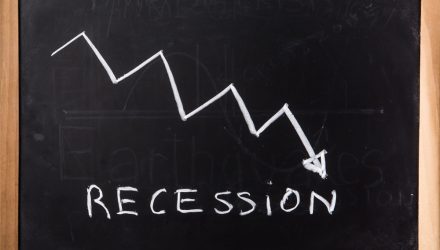For more than a year now, there’s been ample discussion about whether or not the U.S. economy is in or approaching a recession. The surprisingly strong May jobs report out last Friday appears to have allayed some of those concerns. Should recession fears continue easing and economic data prove cooperative with more bullish signs, those scenarios could pave the way for a resurgence in small-cap stocks. This could benefit exchange traded funds such as the Invesco NASDAQ Future Gen 200 ETF (QQQS).
According to readings on some small-cap gauges, the group is currently in a bear market, flailing while large-cap growth stocks lead the broader market higher. That’s a rare scenario that could portend upside for funds such as QQQS in the back half of the year.
“Small caps are down about 21% from their peak in November 2021 as measured by the Morningstar US Small Cap Index. The group has turned in a relatively flat performance in the five years since its prior peak in August 2018, producing total annualized returns of 2.6%. In contrast, the Morningstar US Market Index has produced annualized total returns of 9.5% in that time frame,” according to Morningstar research.
Why QQQS Is Relevant Today
It’s possible that QQQS proves not only pertinent in the near-term small-cap ETF conversation, but the fund could also take on a leadership role should smaller stocks rebound. It has a couple of traits that could make that leadership possible.
First, owing to its Nasdaq-100 Index (NDX) heritage, QQQS has some growth chops. This is highlighted by healthcare and technology ranking as the ETF’s two largest sector allocations by wide margins. Second, some smaller biotechnology stocks currently have cash on hand close to or in excess of their market values. That could imply that some of those names are inexpensive.
Speaking of favorable valuations, a strong case can be made that the broader universe of small-cap equities, including some QQQS member firms, are attractively valued today.
“According to Doug Ramsey, the chief investment officer at Leuthold Group, an independent provider of investment research to institutions, for the first time since 1946-47, small caps failed to participate in what’s been historically a bullish period for all stocks—the six months between November and April of a midterm election year,” concluded Morningstar. “Small caps posted a loss of 3.5% compared with a gain of 8.6% for large caps. Small caps’ failure to surge despite bullish technical indicators, cheap valuations, and during a period that’s historically been favorable for them is sounding a bell.”
For more news, information, and analysis, visit the ETF Education Channel.








